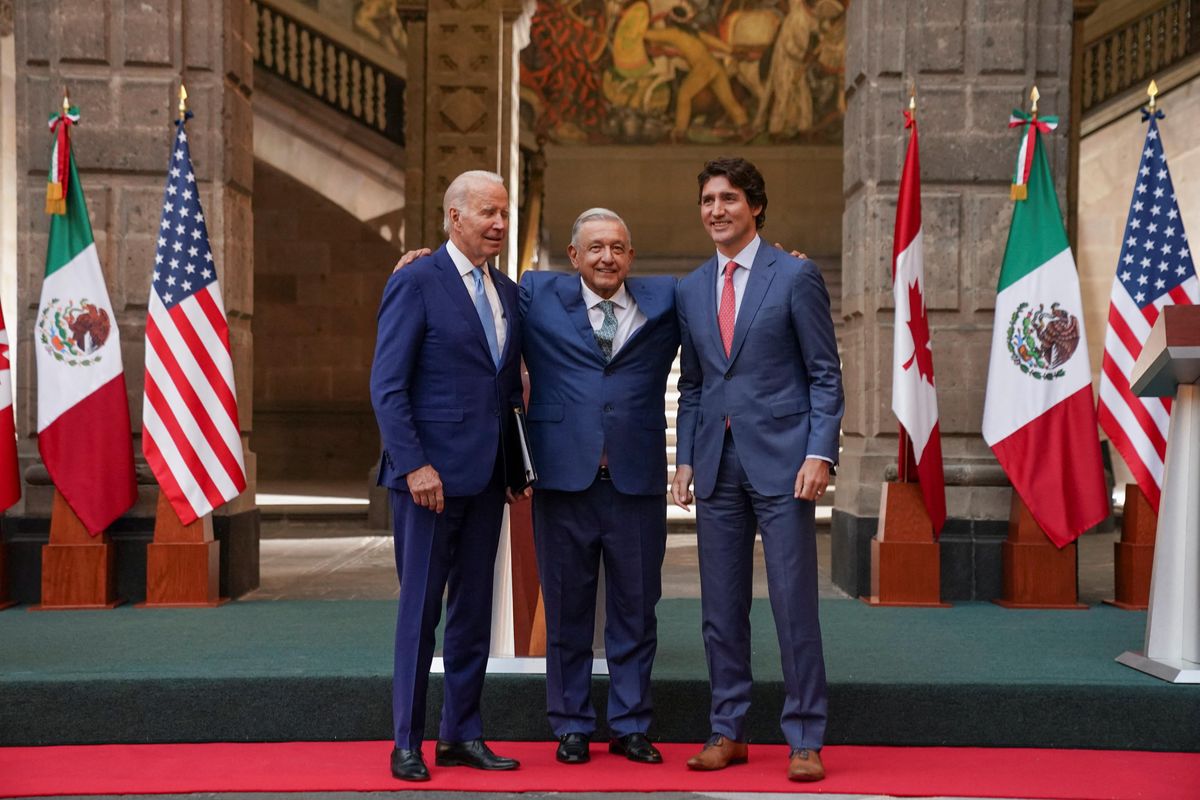Three Amigos talk and ... that's all, folks
Well, some progress is better than none at all — at least among “friends.” At their “Three Amigos” summit on Tuesday, US President Joe Biden, Canadian PM Justin Trudeau, and Mexico’s President Andrés Manuel López Obrador — known as AMLO — announced a slew of agreements on things like moving some US production of semiconductors to Mexico, cutting methane emissions to fight climate change, and installing EV charging stations on shared borders. But they failed to make significant headway on the thorniest issues: the record numbers of asylum seekers entering the US from Mexico; Mexican-made fentanyl causing a public health catastrophe for los gringos; and USMCA-related trade disputes such as Mexico's energy reforms or Canadian grumbling at the Biden administration's EV subsidies. Indeed, perhaps the best thing to come out of the summit is that Biden and AMLO — who had tense exchange on Day 1 — showed that despite their lack of personal chemistry, maybe they can be compadres after all.
A deadly day in Peru
Peruvian authorities announced a three-day curfew in the southern region of Puno after at least 18 people were killed Monday in clashes between protesters and police. It was the deadliest day since the country descended into chaos after the ouster of former President Pedro Castillo in early December. The mostly rural supporters of Castillo, a leftist newcomer to politics who faced multiple impeachment attempts during his 17 months in office, have been blocking roads across the country and calling for him to be immediately released and reinstated. Crucially, they have still not accepted the pledge by acting president Dina Boluarte, Castillo’s former VP, to bring forward the scheduled 2026 general elections to April of next year. Meanwhile, a confidence vote to approve Boluarte’s new cabinet easily passed on Tuesday night (the alternative would have caused a cabinet reshuffle and even more chaos). Authorities have also blocked Evo Morales – Bolivia’s former leftist president and a Castillo ally who was himself ousted amid mass protests in 2019 – from entering Peru to cheer on the protesters. What's more, Peru's chief prosecutor is opening an investigation against Boluarte and members of her cabinet on charges of “genocide, qualified homicide and serious injuries.”
East Asian COVID visa beef
China is lashing out at COVID travel restrictions after reopening to the world. On Tuesday, Beijing responded to the latest curbs by Japan and South Korea by canceling short-term visas for their citizens. Tokyo and Seoul are ostensibly worried about new COVID variants being spread by arrivals from China, where Xi Jinping has relaxed his zero-COVID policy with the same lack of transparency that allowed COVID to spread beyond China’s borders in the first place in early 2020. For its part, Beijing resents being singled out by its neighbors while many other countries are welcoming Chinese tourists. In the near term, the impact of the visa tit-for-tat will be limited because few people are now traveling between China and the two countries. But if the restrictions stay in place for weeks or months, it might delay a much-anticipated revival of business activity in East Asia.

















